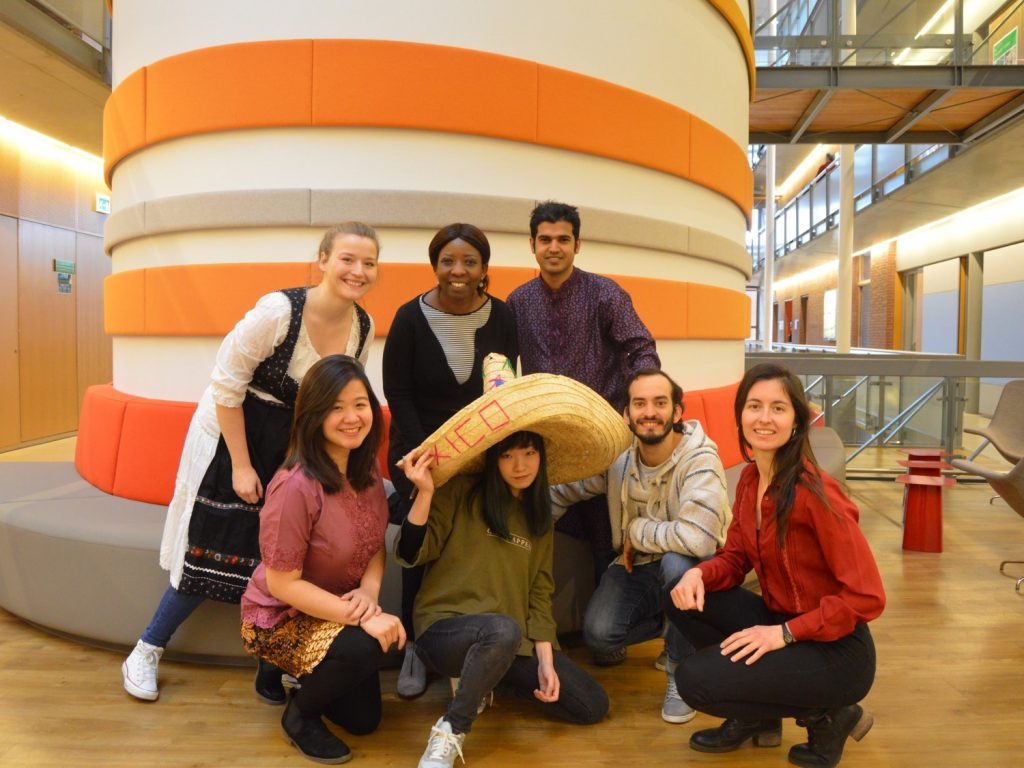Six Nationalities, Eight Weeks, Challenging Project – One Family !
Background
Six nationalities with six different professional and educational background– working together on a challenging yet satisfying project – throughout eight intense weeks. That was pretty much how we, Ainhoa Solano Hernandez, Irma Savitri Sani, Jana Chrenkova, Jorge Gonzalez, Lingxuan Li and Zakaria Alam, would describe our experience working together in Academic Consultancy Training (ACT) Project, in an extremely concise way. ACT Project, as you all may have known, is a cross-disciplinary consultancy course which most of Wageningen UR students take as part of our Master’s degree curriculum. Altogether with Suzanne Tuju, our coach, we had a super great time during this whole period of ACT project.
Food Loss and Waste Reduction Project
In this ACT project, we were working on a Food Loss and Waste (FLW) reduction topic, with The World Bank as our commissioner. Our team was specifically assigned to focus on the FLW reduction in emerging economy. Throughout the project, we investigated the FLW issue and gathered information from various sources, by conducting literature review and expert interviews. The final output of our project is a creative solution to reduce the FLW level in certain area. In our case, we proposed a solution to reduce the Food Loss level in the Mexican beef supply chain by solving some most fundamentals bottlenecks in the supply chain. As part of our solution, we proposed a set of strategy to the World Bank on how to develop infrastructure, improve communication and raise awareness as an effort to reduce FLW in Mexico, particularly in the beef supply chain.
The final output of our project is a creative solution to reduce the Food Los and Waste level in certain area.
The work itself required us to have a lot of discussion, or sometimes even little argument, to come up with a brilliant ideas yet practical enough to be proposed as our solution. We pretty much acted as a real consultant with an actual case, with the help of our coach and academic advisor. In the end of the project, we presented our proposed solution to our commissioner’s team in Washington (of course using the technology of video-call) in the form of a short-duration video which we prepared by ourselves. Surprisingly they were very glad and impressed with our work which was beyond their expectation!
Team Process
Throughout the process, each of us had our own individual task, although most of the time we had to work in a group setting. For example, Irma Savitri Sani, our controller, had to make sure all the time that the group’s planning was in line with the actual performance, and Zakaria Alam, the secretary was responsible for all the administration, correspondence and communication within the group or with external parties. Irma and Zakaria also had to work together with the other team members on building the content of the project itself.
All the members of the team found their own way to enhance to the project by utilising their respective knowledge and background.
This ACT project required everyone’s efforts to combine different knowledge and background into valuable inputs. For instance, Lingxuan Li, who studies Animal Science, has a comprehensive technical knowledge on our FLW project which involves animal products. Jana Chrenkova with her specialty in Business Studies and her particular knowledge in the supply chain management helped the group to come up with a practical solution to the problem, and Ainhoa Solano who studies Agroecology, always provide a holistic view and different perspective in approaching a problem. Simply said, all the members of the team found their own way to enhance to the project by utilising their respective knowledge and background.
The Key to Success
According to our team manager, Jorge Gonzalez, the keys to our team’s successful performance were Trust and Communication. Trust, because it is extremely important to have an environment in which you trust each other and have the confidence of saying whatever comes to your mind. Communication, because in this way you are always aware of the team process, both, personally and academically. But how were trust and communication built and achieved in our group?
The keys to our team’s successful performance were Trust and Communication.
Since week one, we organized team bonding dinners which went on weekly basis. This gave us the chance to interact outside university and got to know each other better. Having the opportunity to share very tasty dinners helped the team to build up trust and made it possible to work in a very relaxed environment. To involve everyone in the discussions and improve communication, a “raise your hand” rule was set in place. This worked very well because there were different personalities in our group, all the way from the quiet and silent to the loud and noisy. In this way, the loud and noisy did not take over the discussions and the quiet and silent felt comfortable to share thoughts. With trust and communication achieved we were able to carry out the project smoothly, without stressing too much, and enjoy a lot!
Finally, thanks to our solid team work and to our coach, Suzanne Tuju, who provided us with never-ending support and clarity, but always gave us a lot of freedom and create independence in her own way. We managed to complete this whole ACT project with full satisfaction, good grades, and most important things are additional knowledge and experience on real consultancy project. Hopefully our proposed solution was able to provide added-value to our commissioner, The World Bank, in combatting the global Food Loss and Waste issue. By the end of this ACT project, the six of us concluded that we had an extremely great experience and now all of us have new ‘family’ from all over the world : Spain, Bangladesh, Slovakia, Indonesia, China and Mexico.


